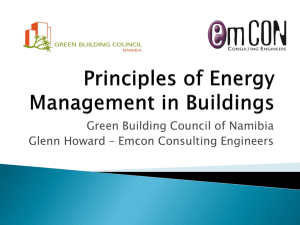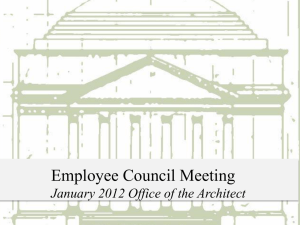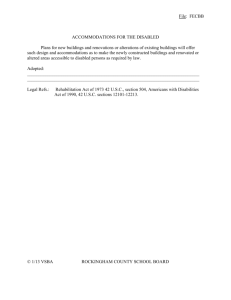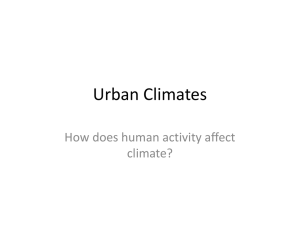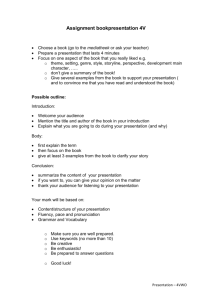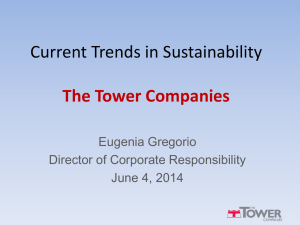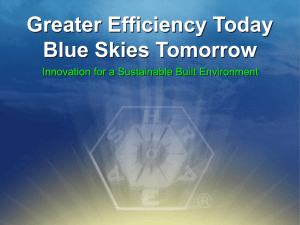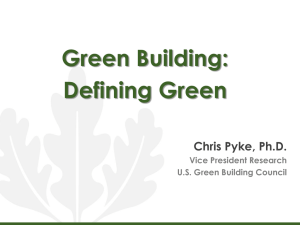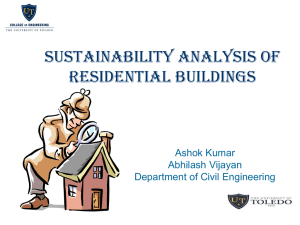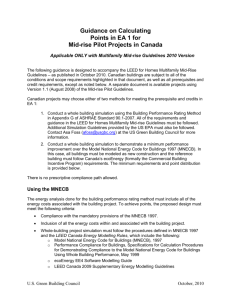Ladies and Gentlemen - Ministry of Environment and Sustainable
advertisement
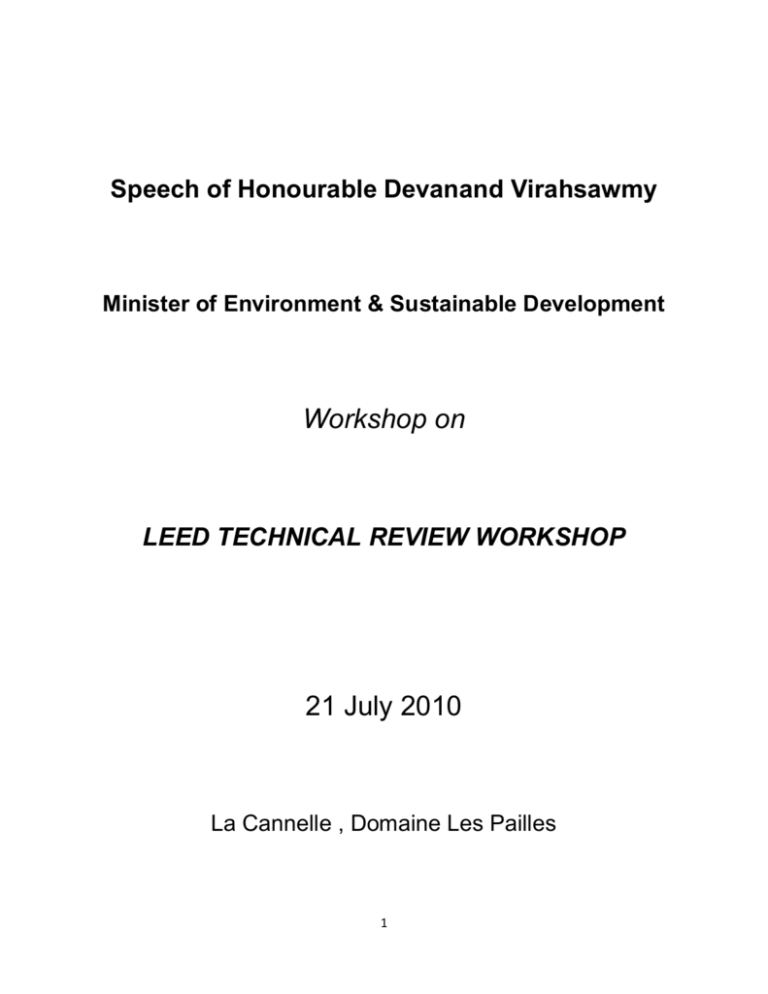
Speech of Honourable Devanand Virahsawmy Minister of Environment & Sustainable Development Workshop on LEED TECHNICAL REVIEW WORKSHOP 21 July 2010 La Cannelle , Domaine Les Pailles 1 Mrs Mary Jo Wills , US Ambassador Mrs Joya Bhandari, Organizer of this Workshop Resource Persons Distinguished Guests Ladies and Gentlemen, Good morning. I am honoured to address you this morning on the occasion of the Integrative Design and LEED Technical Workshop organized by Mrs Joya Bhandari in collaboration with the US Green Building Council. It is indeed a great pleasure to have among us world class experts in the field of sustainable development from the United States and more specifically on the LEED Rating system which is an internationally recognized green building certification system. Ladies and Gentlemen Sustainability is one of the main challenges of the new millennium. Both the ecological and energy crises with the backdrop of climate change are prompting governments across the world to integrate environmental considerations into their decision- making processes in a horizontal manner. In recent years, we have witnessed various laudable initiatives towards sustainable buildings in Mauritius. There is undeniably a move towards 2 more innovation in sustainable building design, construction and operation. Hence, the need to further enhance this momentum and sensitize local building professionals about integrative design principles and the LEED System, which measures and guides sustainable development. Ladies and gentlemen Buildings create the framework for our daily life, which starts with the formulation of a need to construct, the selection of a site, preliminary planning, construction of the building, its use, operation, maintenance and finally its demolition. In Mauritius, built–up areas are estimated to cover more than 25% of the land in Mauritius and this percentage is increasing every year. Between 7, 000 and 10, 000 building permits are granted each year for residential and non- residential development purposes.The increasing importance of new investment sectors of activity such as business activities, intelligent parks, Integrated Resort Schemes (IRS) development are bringing profound modifications to our land regime, raising issues of long term environmental sustainability. Achieving sustainability of the built environment is not only a local but a global challenge. In fact, buildings are the single largest contributor to global warming and they account for approximately one third of all energy related greenhouse gas emissions worldwide, which is expected to further increase in the future. Innovations in building design, construction and operation therefore play a key role in combating and addressing climate change. 3 As a responsible Government, we recognize the urgency to reconcile current boom in the construction industry with its sustainability. Ladies and gentlemen A National Programme on Sustainable Consumption and Production for Mauritius is actually under implementation. In this context, my Ministry will soon be launching a policy and guidelines on sustainable buildings and construction, a building rating system as well as training programs for industry professionals on sustainable buildings. The project is being funded by the European Union and will start in January 2011. It will be a very intensive project with lots of consultation from relevant stakeholders – government, private, parastatal , academia , experts , etc. The policy on sustainable buildings will comprise mainly of national targets in terms of sustainability for different categories of buildings , namely residential , commercial , industrial , hotels , public buildings , low- income housing , hospitals , schools , etc. The guidelines for sustainable design and construction will serve as a benchmark and are intended to implement integrated principles for the sustainable planning, construction, operation, maintenance and use of the buildings. The guidelines will then be translated into a building rating system which will comprise a set of environmental qualifying criteria for sustainable buildings. The project will recommend an appropriate institutional set up for the award of the rating system and also a detailed mechanism for implementation and monitoring of the building rating system. 4 This project will also complement the one implemented by the Ministry of Energy and Public Utilities on “Removal of barriers to Energy Efficiency and Energy Conservation in Buildings”. The outputs from both projects will constitute new Building Regulations and Codes, which so far did not consider the sustainability aspect of buildings. Ladies and gentlemen, To-day’s initiative of bringing together, world class experts from the US Green Building Council in order to sensitize on the LEED specification in buildings is indeed highly commendable. The networking that you will establish will no doubt boost up your knowledge in the LEED Rating system and this will definitely promote our capacity to innovate. We need to tap all the opportunities on our route to a low carbon economy. It is also very encouraging to note that our efforts to protect environment have also been acknowledged at international level. Mauritius ranked 6th on Environmental Performance Index (EPI) at the World Economic Forum for 2010. This recognition bears testimony of the collaborative efforts of all stakeholders to sustainably manage our environmental assets. This recognition compels us to do even better. However, to ensure sustainability in our environmental performance we need to forge ahead as a single entity. Government is fully committed to ensuring environmental sustainability to the population but the collaborative efforts of all the partners and especially the private sector would be paramount in this quest. Each sphere of society has therefore an important role to play and should act responsibly towards the environment. 5 Ladies and Gentlemen, There is no universal definition of sustainable building and construction. It is constantly evolving as our understanding of the complexity of the issues is increasing. It is therefore a learning process and you are all here to learn from each other. It is my conviction and trust that this workshop will be a major forum of inspiration for Architects, Building Designers, Policy Makers, Engineers and construction companies to engage in eco-building design, construction and operation and try to make a difference in the built environment. No doubt, we need your visionary and collaboration to build a sustainable society for us and for our children. With these words, I wish you fruitful interactions. Thank you for your attention. 6

